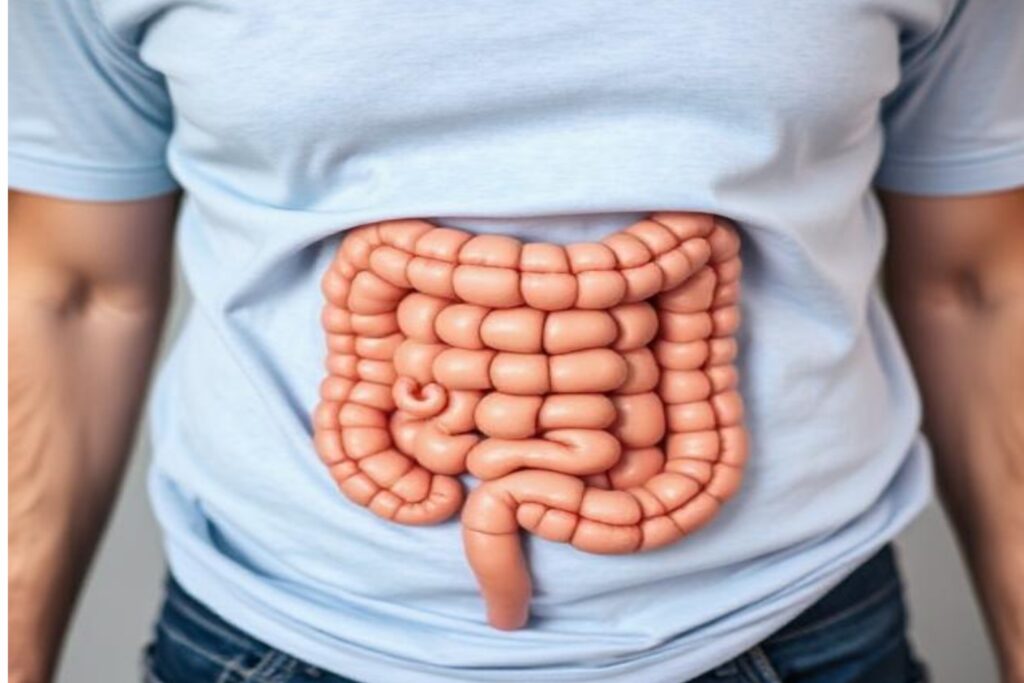Colon malignant growth is a sort of disease that beginnings in your colon (digestive organ) or rectum. Your colon and rectum are the organs that make up the lower piece of your stomach-related framework.
•lymphomas, which can shape in lymph hubs or in the colon first
•carcinoids, what starts in chemical making cells inside your digestive organs
•sarcomas, which structure in delicate tissues like muscles in the colon
•gastrointestinal stromal growths, which can get going as harmless and afterward become dangerous (They typically structure in the intestinal system, however seldom in the colon.)
symptoms of colon cancer
1.stoppage
2.the runs
3.changes in stool tone
4.changes in stool shape, like restricted stool
5.blood in the stool
6.draining from the rectum
7.unnecessary gas
8.stomach cramps
9.stomach torment

What are symptoms and experiences of colon cancer?
Some symptoms one may experience are as follows:
1.Bloody stools/Bleeding during defecation – Tumors (cancer) tend to easily bleed when pressure is applied during normal bowel movements hence can result in bloody stools. If the bleeding occurred further from the rectum the bleeding is dark red/maroon in color, if it’s nearer the blood looks fresh.
2.Narrow “pencil” stools – Due to large tumors the gut becomes narrow causing formation of thin stools.
3.Pain during defecation – Also due to large sized tumors the gut muscles get cramped due to extra effort they put to push out your stools.
4.Sensation of incomplete emptying of bowel (Tenesmus) – The tumor may make you feel like there is something left in your bowel, but nothing comes out as you try to defecate, causing further problems with repeated tries.
5.Abdominal pain – When tumors invade the surrounding nerve fibers it causes pain and felt in the abdomen.
6.Fatigue – Due to increased blood loss from tumors you might develop anemia causing easy fatigability from doing day to day activities, which you could do earlier with no problems.
7.Weight loss – Since tumors take lot of your nutrients to grow really fast, it starves the body and starts to lose weight.
Also, another symptom to look for is alternating periods of diarrhea and constipation, which is a telling sign of colonic diseases.
So, if you are experiencing any of the above symptoms you should visit your nearest physician and get yourself checked out. Endoscopies (like colonoscopy, sigmoidoscopy and proctoscopy) are the best methods to diagnose colon cancers therefore you shouldn’t shy away when the doctor advises you to do one because the earlier you get diagnosed and treated the better your chances of survival.
Although these symptoms might not be specific to cancers nonetheless you should visit your physician because these mean you have something wrong going in your gut. Better be safe than sorry. Hope it cleared some doubts.

What are some missed symptoms of colon cancer?
In medicine, we use the term “symptoms” to mean subjective changes (usually abnormal) that the patient notices, such as pain or fatigue. We use the term “signs” as objective changes (usually abnormal) which can be measured, such as fever or high blood pressure. Thus symptoms are not usually missed by the patient, but both the patient and the patient’s doctor may not associate some symptoms with a particular disease.
Most colon cancers initially show no symptoms or signs.
As they grow larger, they often bleed. At first, the bleeding is usually minimal. Unless the tumor is located in the distal colon (rectum), minimal bleeding may not be noticed by the patient. But even a slight amount of blood (aka occult blood) can be detected by a stool guaiac test, easily performed in a doctor’s office.
(Any source of hemoglobin, such as gastric bleeding or even consuming lots of red meat, can produce a positive guaiac.)
So occult bleeding is a very common sign missed in persons with colon cancer who do not get a guaiac test. Some doctor’s perform this test routinely on patients over a certain age for this reason, but most do not unless the patient has abnormal bowel symptoms, such as abdominal pain, change in bowel habits, etc.
If the tumor is located in the rectum, even a small amount of bleeding may be seen in the stool as bright red blood (aka hematochezia). Although bright red blood in the stool may be caused by other processes, such as anal fissure, diverticulosis or hemorrhoids, its presence should always be further investigated to ensure there is no tumor.
Tumors in the more proximal colon that bleed more frequently cause the stool to turn black (if the bleeding is sufficient) because the blood is decomposed and the hemoglobin oxidized/degraded by the time it gets expelled with stool. This is called melena and is also a sign signifying the need for further investigation. (Black stools may also be caused by a few other benign processes, such as drinking lots of Pepto-Bismol.)

Thus, bright red blood in the stool and melena may be missed signs if the patient does not observe it in the stool.
Another sign caused by a bleeding colon cancer that can be easily missed is anemia. This may not be associated with any symptoms or it may cause fatigue and reduced exercise tolerance since less oxygen is being delivered to the muscles and other parts of the body. Thus, patients who present with these symptoms should have a blood hematocrit and hemoglobin test to evaluate the possibility of anemia.
A very tragic event occurred with a 25 yo medical school classmate of mine. In the late stage of her pregnancy, she noticed increasing fatigue which she thought was more than it should have been for a normal pregnancy.
The test for hematocrit and hemoglobin were both low, indicating anemia. She was given increased iron supplements, which somewhat improved her anemia. After delivery, she stopped her iron and her anemia worsened. After several more months of iron supplements and minimal improvement, a complete work-up for a cause was initiated. A stool guaiac was positive for blood. She then had upper (esophago-gastric) endoscopy to look for gastric or esophageal ulcer, which was negative. This was followed by a colonoscopy, which revealed a large, focally ulcerated cancer in the proximal colon next to the junction with the small bowel. By this time, the tumor had already metastasized to her liver, and she died 6 months later after intensive experimental chemotherapy.
So even though she had the symptom of fatigue and the sign of anemia, both were attributed to her pregnancy. In a 26 yo, colon cancer was never considered as a cause of her anemia, particularly since the anemia could be attributed to another more plausible cause-pregnancy. Thus, even when symptoms and signs are evident, colon cancer can still be easily

